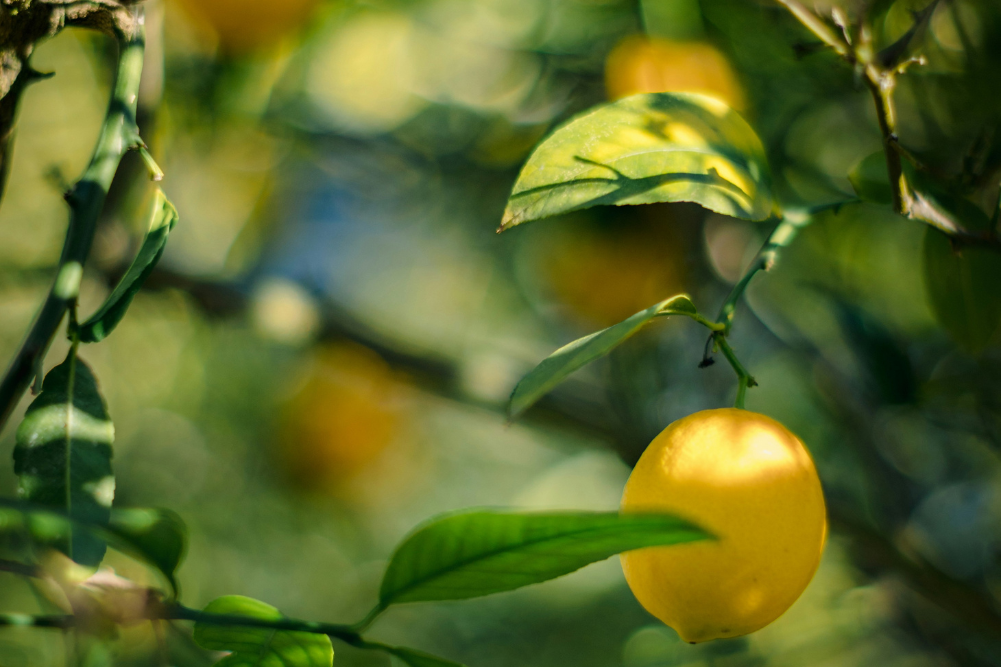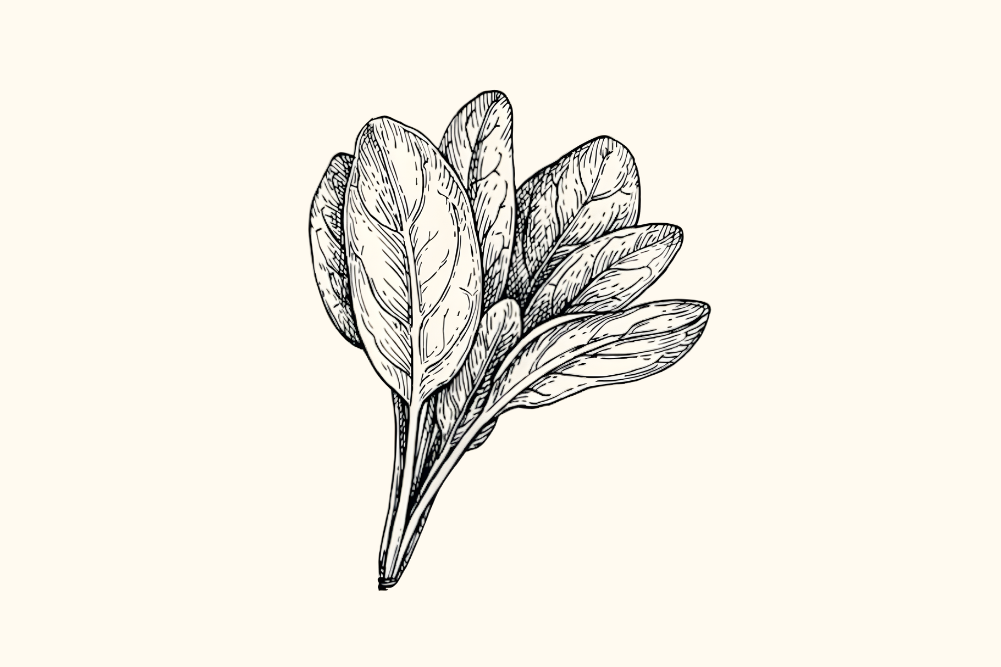Cooking with medicinal mushrooms
The use of medicinal mushrooms as a food and medicine dates back thousands of years. Traditional and folk practitioners have revered these special fungi for their healing properties. Medicinal mushrooms are particularly popular in China and other East Asian countries, where they are used in Traditional Chinese Medicine (TCM) for promoting health and longevity.
Due to their outstanding health benefits, medicinal mushrooms have grown in popularity and have now become a valued functional food and culinary delight.
There are over 10,000 different types of mushrooms known, but only certain mushrooms are classified as medicinal. These mushrooms have a long history of medicinal use, and their biologically active compounds exhibit a wide range of pharmacological activities that support good health and wellbeing.
The most valuable and well-studied medicinal mushrooms include shiitake, reishi, cordyceps, turkey tail, maitake, lion’s mane and chaga. These mushrooms have a myriad health benefits, including strengthening the immune system and promoting longevity. They have been found to enhance cognition and memory, increase stamina and energy, reduce inflammation and promote adrenal and nervous system health. Many of these mushrooms also offer protection against cancer, type-2 diabetes and cardiovascular disease.
Health benefits of medicinal mushrooms
Medicinal mushrooms are nutritional powerhouses and make a wholesome addition to the diet. Mushrooms are rich source of vitamins, minerals and antioxidants, including B vitamins, vitamin D, iron, potassium and selenium.
Mushrooms are also a great source of chitin, which is a type of insoluble fibre found in fungal cell walls. Chitin gives mushrooms their meaty texture and gut-healing properties. Chitin acts as a prebiotic, which boosts the growth of beneficial gut microbiota and reduces intestinal inflammation.
Mushrooms are a good vegetarian source of protein, containing all nine essential amino acids. Mushrooms also have a high branched-chain amino acid (BCAA) composition, which is usually only seen in animal-based protein-rich foods. They also contain beneficial unsaturated fatty acids.
Mushrooms contain a substance called ergosterol, which has antitumour and antioxidant properties. Ergosterol is also a precursor to vitamin D, that is, it can be transformed into vitamin D when exposed to ultraviolet (UV) light. Some farmers expose their mushrooms to UV light to increase their mushrooms’ vitamin D levels.
Medicinal mushrooms contain polysaccharides called beta-glucans, which are sugars found in the cell walls of fungi. Beta-glucans help support the immune system by enhancing macrophage and natural killer function. They can also modulate the immune system by down-regulating an overactive immune system when needed, as seen in autoimmune diseases. Beta-glucans also have natural antibiotic and antiviral properties.
Triterpenoids are another class of bioactive compounds found in medicinal mushrooms. Triterpenoids have many functions including protecting the liver, inhibiting histamine release and lowering blood pressure. They have also been studied for their antitumour properties.
Many mushrooms are beneficial for managing healthy cholesterol levels. Mushrooms are a valuable source of lovastatin, which is a natural “statin” that helps lower high cholesterol levels.
7 medicinal mushrooms
Here are seven top medicinal mushrooms you should be including in your diet for optimal health.
Reishi (Ganoderma lucidum)
Known as “the mushroom of immortality”, reishi mushrooms have been used for thousands of years in TCM as a longevity tonic and to restore and balance shen (emotional balance). Traditionally reishi has been used to improve sleep and cognition, reduce anxiety and build strength and stamina. Chinese Taoist monks wrote of using reishi mushrooms to promote calmness and to enhance their meditative practices.
Reishi is a potent adaptogenic medicinal mushroom, which supports adrenal function and improves the body’s resistance to stress and disease. Reishi is also considered an anti-stress mushroom that soothes and calms an overactive nervous system, easing anxiety and aiding sleep. This is an ideal mushroom for anyone with adrenal fatigue, or who feels stressed out and fatigued.
Reishi mushrooms also contain immune-modulating beta-glucans, and have anticancer, liver-protective and blood-sugar balancing properties.
Chaga (Inonotus obliquus)
Called “king of the mushrooms”, chaga was traditionally used in folk medicine throughout Russia to treat digestive complaints and cardiovascular disease.
Today chaga is a valued adaptogenic tonic that supports adrenal and immune function and improves gastrointestinal imbalances. Chaga is rich in antioxidants, which are important for protecting cells and DNA from damaging free radicals. Chaga also has anti-inflammatory properties that help reduce inflammation in the body, which is a major cause of oxidation and disease.
Chaga contains betulinic acid, an important triterpenoid compound that has shown to have anticancer and antitumour effects.
Maitake (Grifola frondosa)
Maitake mushrooms, also known as the “hen of the woods”, are native to China and also grown in Japan. Consuming maitake can help support healthy immune function due to their rich beta-glucan content. They stimulate the immune system’s lymphocytes, natural killer cells, monocytes and T helper cells. Maitake mushrooms in particular have high antitumour and anti-inflammatory activity.
Studies have shown that maitake is beneficial for reducing blood pressure and cholesterol. Maitake can also help balance blood sugar levels, making it a beneficial mushroom for diabetics and people wanting to lose weight.
Cordyceps (Cordyceps sinensis)
Cordyceps, known as the “the caterpillar fungus”, is the most expensive fungus in the world. This valuable mushroom is an incredible energy-boosting fungus. Traditional healers use this fungus as a powerful tonic to improve energy, appetite, stamina and endurance.
Studies have shown that cordyceps can increase the production of adenosine triphosphate (ATP), the compound that gives cells energy. Cordyceps can help improve exercise and physical performance.
Cordyceps is also known for its aphrodisiac qualities, being called the “Viagra of the Himalayas”. Consuming cordyceps has been found to increase libido and improve sperm health.
Turkey tail (Trametes versicolor)
In TCM turkey tail has been traditionally used for supporting digestion, strengthening the immune system and promoting vitality.
Turkey tail’s most impressive health benefit is its ability to enhance the immune system. Turkey tail contains various polysaccharides, in particular polysaccharide K (PSK), that has a stimulating effect on the immune system, encouraging the body to produce more immune cells. PSK also has anticancer activity, suppressing the growth of tumours.
tudies have shown that turkey tail is beneficial for gut health too, as it acts as a prebiotic to promote the growth of beneficial gut microbiome. A large percentage of our immune cells lie within the gut. Supporting gut health is an important way to promote a strong immune system.
Shiitake (Lentinula edodes)
During the Ming Dynasty in China, shiitake was deemed “the elixir of life”. Shiitake has long been used as a food and supplement in TCM, to promote healthy circulation and longevity.
Consuming shiitake has been shown to stimulate the immune system, including gut immunity, and it can help promote a healthy inflammatory response. Shiitake mushrooms contain a polysaccharide called lentinan that has a potent immune-boosting effect. They have been shown to increase igA (immunoglobulin A), a key immune cell.
Shiitake mushrooms also support cardiovascular health. Shiitake contains a compound called eritadenine that can help maintain healthy cholesterol levels.
Lion’s mane (Hericium erinaceus)
Lion’s mane mushroom can support brain function and nervous system health. It contains important phytonutrients like beta-glucan that have immune-modulating, antioxidant and neuro-protective effects.
Research suggests that lion’s mane can help promote nerve tissue growth. Certain compounds found in lion’s mane, namely hericenones and erinacines, can induce nerve growth factor (NGF) synthesis in nerve cells, which are necessary for the growth, maintenance and survival of nerve cells in our brain and nervous system. Lion’s mane has potential in the treatment of Alzheimer’s disease and dementia and for regeneration of damaged nerves.
Buying and preparing medicinal mushrooms
Fresh or dried medicinal mushrooms can be found at your local farmers’ market, grocer or healthfood store and online. Some mushrooms are inedible or can be poisonous, so it’s safest to buy your mushrooms from a trusted source.
Mushrooms are porous and very absorbent, which is perfect for when you’re cooking with marinades and sauces, but not so good when they’ve been sprayed with chemicals. This is why it’s important to buy organically grown mushrooms that are free from toxic pesticide and herbicide residues.
Before cooking fresh mushrooms, wipe them down with a damp clean cloth to remove any dirt. Mushrooms absorb water easily so don’t submerge them in water. They are best kept dry in a roomy paper bag in the fridge. If your mushrooms look orange and they’ve gone soft and slimy, you need to throw them out as they’ve gone off.
Dried whole or sliced mushrooms need to be soaked in boiling water first, covered, for around 30 minutes until they become plump. Drain them and cut off any tough stems. Keep the liquid to use in stocks and soups. Then you can slice and cook your mushrooms.
When you’re buying powdered medicinal mushroom extracts, look for a certified organic product. You should also check that it’s made from the fruiting bodies, not the mycelium, and that it contains no starch or grain. The fruiting bodies are the mushroom part above the ground, which most of the scientific research has been done on and traditional healers have used. The mycelium on the other hand is the long filaments that look like roots that grow on decaying logs or other mediums. Some companies cultivate mushrooms on a cereal medium like oats, millet, wheat or rye. The mycelium is hard to separate from what it’s grown on, so mushroom powders made from mycelium also often contain fillers such as starches and cereals. Powders made with only the fruiting bodies are 100 per cent mushroom, and are of higher quality and richer in medicinal properties.
Cooking with medicinal mushrooms
Some medicinal mushrooms such as shiitake, maitake and lion’s mane make excellent culinary mushrooms. They’re versatile and can be enjoyed fresh or dried in a variety of dishes. Slice fresh mushrooms or soak dried mushrooms, then sauté them in some olive oil over a medium heat. Then add them to soups, stews, curries, pizza, miso soup, stir-fries, frittatas and omelettes, noodles or rice dishes like risotto. Lion’s mane has a seafood-like taste similar to lobster, crabs or prawns, which makes it a good seafood substitute for vegetarians and vegans. Lion’s mane is tough and watery though, so it needs to be cooked slowly for longer to remove its moisture. Mushrooms create rich savoury flavours called umami, due to the presence of an amino acid called glutamate.
Medicinal mushrooms that are too tough to eat fresh such as reishi, chaga and turkey tail, that are not ideal for cooking, have been traditionally prepared as a tea or added to broths. To make a tea, first chop or break up the fresh or dried mushrooms into small pieces. Place about a tablespoon of mushroom and two cups of fresh water in a pot. Bring it to the boil and then simmer with the lid on for an hour. Top it up with more water if needed and strain. You can also use this brew as a stock for soups, stews, risotto and curries. Chaga and turkey tail both have a mild earthy flavour which makes a pleasant-tasting tea. Reishi on the other hand has a bitter taste and works better as a powdered extract added to meals.
Today all medicinal mushrooms are available in powdered extracts that can easily be incorporated into meals. Mushroom powders are an excellent way to maximise their medicinal value. Powdered medicinal mushroom extracts can be used to supercharge smoothies, veggie juices, protein balls, coffee, hot chocolate or chai. You can also add medicinal mushroom powder to soups, broths, stews, dressings, raw desserts and baked goods. Some medicinal mushroom blends have a bitterness and flavour similar to coffee, which makes them a good coffee alternative, hot or iced. Mushroom powders are potent, so start off with a small serving and then increase the amount — the recommended dosage is between half and one teaspoonful daily. Medicinal mushrooms can also be purchased as a liquid tincture which can also be added to drinks and meals.








